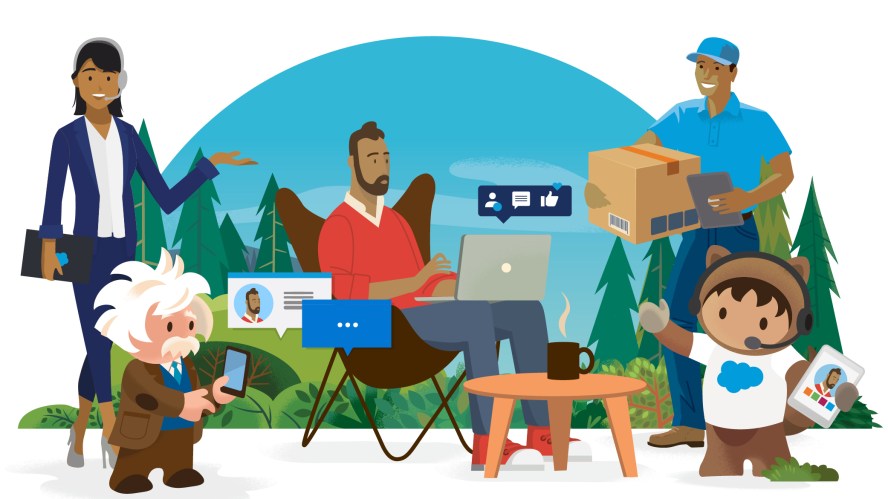Medcast explains what ‘living with COVID’ means for SMBs in 2022



The past two years have been a whirlwind for everyone and small-to-medium businesses are no exception. Social and economic changes have forced business owners to rethink the way they operate on every level, and many had no choice but to make these changes on the fly.
Kate Clutton
One such SMB is Medcast, a healthcare education company that rallied to respond to the urgent demands of the COVID-19 pandemic. Here, Medcast’s Kate Clutton, Director Strategic Projects, shares the changes that they made out of necessity, the challenges and unexpected benefits that came out of those changes, and where SMBs are likely going from here.
Every sector was thrown for a loop by the onset of the pandemic, but none so directly as the health system. Healthcare professionals already operate in a space with high and often life-or-death stakes while simultaneously battling gruelling hours, fatigue and burnout. At Medcast, we strive to equip those professionals with the skills and tools to face those stakes, reskilling and upskilling based on new evidence and evolving circumstances.
So, when the COVID-19 pandemic hit, the stakes were never higher for healthcare professionals, and we at Medcast knew that our responsibility of empowering them was now more vital than ever. Unfortunately, our primary method of doing so was off the table, with lockdown cutting off the possibility of face-to-face learning. And with staff shortages in the complex and difficult-to-train specialty of critical care, we needed to find a solution quickly.
Thankfully, we did. Like many SMBs, we pivoted, switched and reshaped, and through that process, altered our way of thinking. Many of these changes are here to stay and sharing our learnings can offer clarity to other SMBs, no matter the industry, going forward.
See the latest small and medium business trends
Read insights from over 2,500 small and medium business owners and leaders worldwide.



The development of the digital mindset
At Medcast, the logical path to training health care professionals in critical care was a digital one. At the time, we did have the functionality to facilitate e-learning, but it was basic and only ever operated as a minor adjunct to face-to-face training. Our task was not only to move the core of our business to the online world, but also to find dynamic ways to reimagine often-complex learning digitally.
Working with the federal government, we rolled out digital education across the country, resulting in 400,000 hours of learning completed in Critical Care or High Dependency Nursing. From this digital education program, participating nurses have reported a significant improvement in patient quality of care.
These and other successes made us completely rethink the way that we deliver education. While yes, we will undoubtedly continue to hold face-to-face classes, it’s safe to say that some will never again be conducted in-person. With specific courses, digital allows us to harness various mediums to teach more efficiently in an increasingly engaging fashion, not to mention improving the accessibility of high quality training to health professionals in regional and remote locations.
The development of digital-first thinking, borne out of necessity, is evident in every industry. And recent research has shown that many SMB leaders are making these changes permanent. For example, 79% of SMBs plan to offer contactless services going forward.
Digital has allowed us – as it has SMBs across the board – to further fulfil our missions in new and inspiring ways.
Technology tools increasing operational efficiency
While turning to digital to find education delivery methods, Medcast deepened our relationships with online tools, and through that process were able to find new efficiencies. Slack afforded us ingenious methods of communication and collaboration; its capabilities benefiting us in ways face-to-face could not.
Similarly, further utilising the Salesforce ecosystem was vital in supporting the uptick in traffic to our services. Prior to the pandemic, we had thought that we were properly managing our customer service through Salesforce, but it wasn’t until we were forced to configure it to meet new demands that we realised its untapped potential in increasing operational efficiency.
Adoptions of or deepened relationships with these platforms were again, borne out of necessity, but the efficiencies that they afford organisations are too profound to ignore. In fact, the same research found that 75% of all SMBs say shifts in business operations in the past year will benefit them long-term.
The only constant is change
If we’ve learned anything from the past two years, it’s that we never know what’s waiting around the corner. Expecting the unexpected needs to be factored into our everyday lives more than it was yesterday, even in regards to the pandemic itself – which health professionals know better than most.
SMBs across all industries can benefit from looking for any possibilities to future-proof their ways of working. In our case, future-proofing means we’re able to continue to support healthcare professionals so that they can serve the community with their best feet forward.
Forming a digital base and utilising digital tools offers a flexibility and intactness that bode well in the face of uncertainty. Being agile with digital means that no matter what happens, businesses can adapt, and employees and customers can always have a means of operating, wherever they are.
The way forward for SMBs in all sectors isn’t always clear, which makes remaining open to new information and ideas all the more important. Doing so is a core belief at Medcast, and not only has it taken on new meaning over the past two years, but it’s become an imperative for everyone, no matter your industry, organisation, or location.
See the latest small and medium business trends
Read insights from over 2,500 small and medium business owners and leaders worldwide.






















